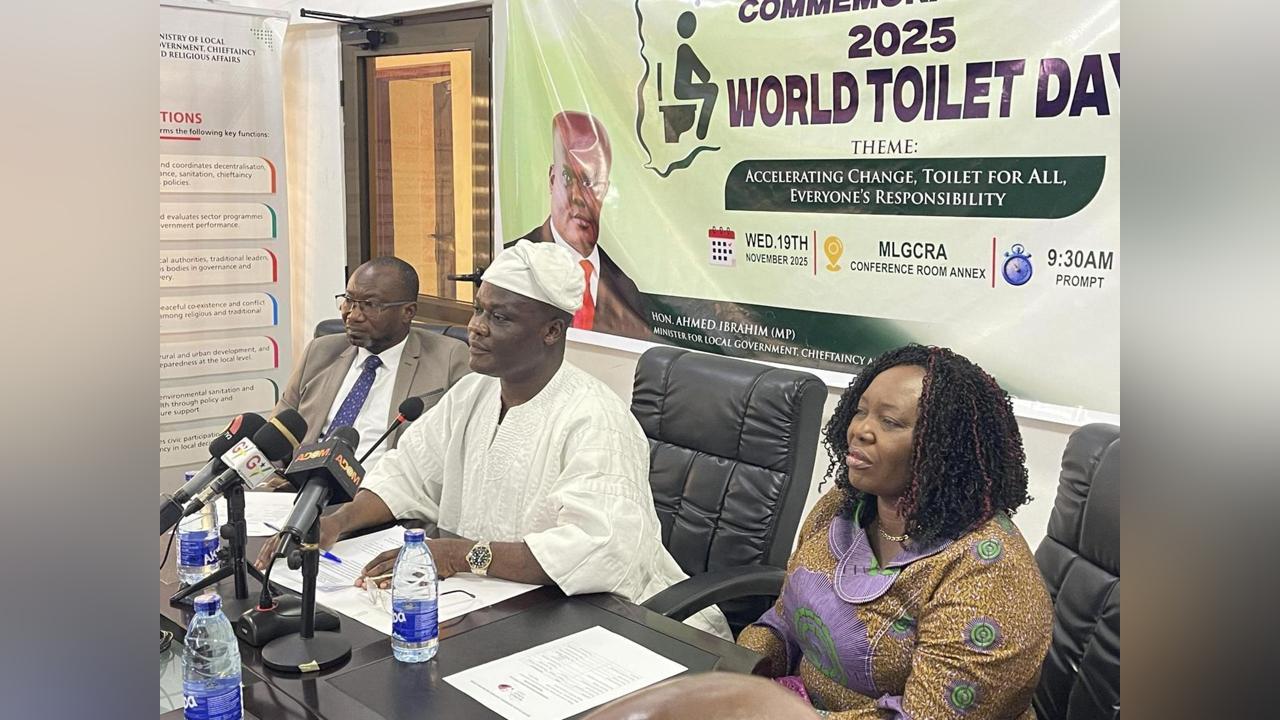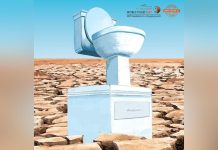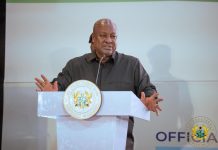Africa-Press – Ghana. Mr. Ahmed Ibrahim, Minister for Local Government, Chieftaincy and Religious Affairs (MLGCRA), has urged Ghanaian households to prioritise toilet construction as a basic necessity rather than a luxury.
He said the country’s sanitation progress would remain slow unless citizens take greater responsibility.
The Minister made the call at the commemoration of the World Toilet Day 2025 in Accra, held under the local theme, “Accelerating Change: Toilet for All, Everyone’s Responsibility.”
It was organised by the MLGCRA in collaboration with the Ministry of Water Resources, Works and Housing, development partners and all relevant stakeholders.
Mr. Ibrahim said the theme reflected the urgent need for collective ownership beyond government intervention to achieve universal access to safe and sustainable sanitation.
He expressed concern over Ghana’s slow progress, despite its lower-middle-income status, indicating that data from the 2023 Ghana Demographic and Health Survey, revealed that only 25 per cent of households had access to basic sanitation.
Mr. Ibrahim said the situation was more severe in some regions, with the 2023 MICS report showing open defecation rates of 49 per cent in Upper East, 40 per cent in North East, and 38 per cent in Savannah Regions.
“These numbers reflect not only infrastructure gaps but deep inequities in sanitation service delivery and financing,” he added.
He noted that countries such as Senegal, Côte d’Ivoire and Liberia despite having fewer resources were progressing faster in sanitation access than Ghana.
Mr. Ibrahim said low household investment in toilets, chronic underfunding of sanitation, rapid urbanisation without matching infrastructure, weak enforcement of sanitation by-laws and fragmented sector collaboration were key structural and behavioural challenges facing Ghana.
The Minister noted that Ghana did not need more studies but more action, where proven interventions such as Community-Led Total Sanitation (CLTS), revolving toilet financing schemes, and private-sector participation in desludging and toilet construction had yielded results in many communities.
“What we need now is scale, speed and sustained commitment,” he stressed.
He called for special attention to marginalized areas, including northern regions, low-income urban settlements, island communities along the Volta Lake, and peri-urban zones.
Mr. Ibrahim described poor sanitation as an economic burden, indicating that over 25 per cent of outpatient cases were linked to sanitation-related diseases, more than 5,000 annual deaths of children under five due to diarrhoeal diseases and with over 60 per cent of surface water in urban basins contaminated with faecal matter.
The Minister said achieving “Toilet for All” required coordinated actions from households, traditional authorities, faith-based organizations, private sector actors, the media, MMDAs, development partners, and schools and health facilities.
Madam Korama Ocran, WASH Officer, United Nations International Children’s Emergency Fund (UNICEF), said climate change, ageing infrastructure, and inadequate investment were putting sanitation systems under immense pressure.
She added that toilets must be future-ready, accessible, resilient, and low-emission.
Madam Ocran said UNICEF was ready to work with the Government of Ghana and partners to promote behavioural change for hygiene and sanitation, support WASH in schools and health facilities, ensuring no child learnt and no mother delivered without safe sanitation.
She called on the government to prioritize sustained investment in WASH, allocate resources, enforce by-laws, and integrate climate resilience into sanitation planning.
The WASH Officer also called on the media to amplify the message that sanitation was life-saving, help to break taboos and inspire behaviour change.
She urged communities to join efforts to make Ghana open-defecation-free.
For More News And Analysis About Ghana Follow Africa-Press







